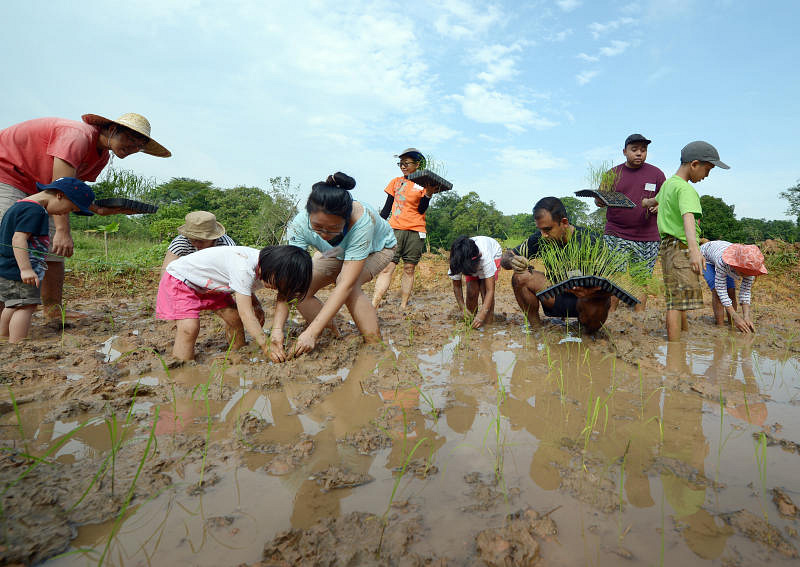SINGAPORE - As Asians, we eat rice perhaps every other day. But have you ever considered where the rice comes from?
Understanding where the staple food comes from and the hard work needed to grow each grain was the principle behind a rice-planting session in Yishun on Saturday (Dec 23).
Organised by non-profit organisation Ground-Up Initiative (GUI), the session at an organic farm in Lorong Chencharu is said to be the first of its kind.
About 10 participants were ankle-deep in the well-watered parcels of land, and the kids, one as young as three, got their hands (and feet) dirty planting the green seedlings.
Called The Paddy Experience, the session was set up to help participants build a relationship with food, and to appreciate the labour of farmers who create these crops.
The Paddy Experience took root in early July this year. Plots of land were fertilised with organic green waste compost.
The first planting of the seedlings began the next month, and the first harvest was reaped this month.

GUI expects another round of planting in May next year, with a harvest in September.
A National Environment Agency household waste study released early this month of 443 homes found that food waste comprises about half, or roughly 2.5kg, of the waste tossed out by each Singapore home.
More than half the food wasted could be avoided through people not buying, ordering or cooking excessively, with rice, noodles and bread forming the most commonly wasted food items, said the five-month study.
The findings underscored the fact that the amount of food waste generated in Singapore has increased by about 40 per cent over the last 10 years, with the amount last year - 791,000 tonnes - equivalent to the weight of more than 3,500 MRT trains.

